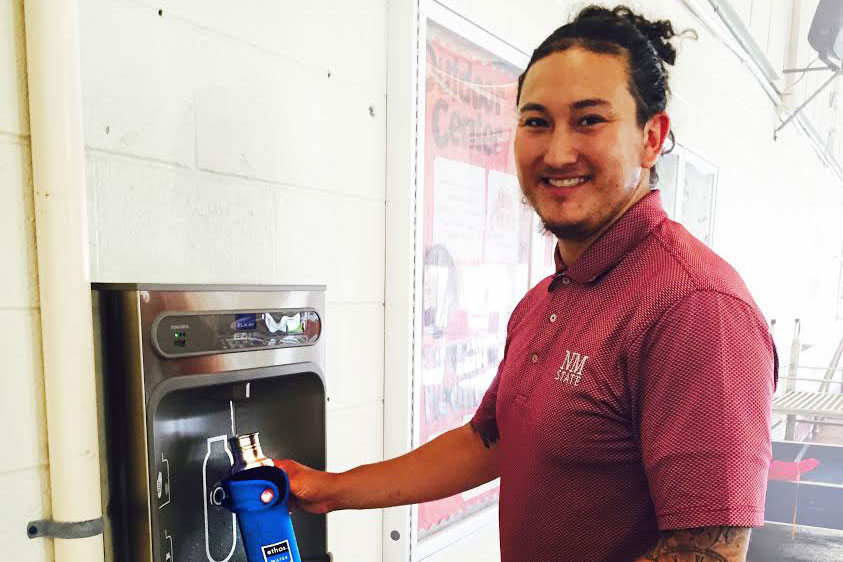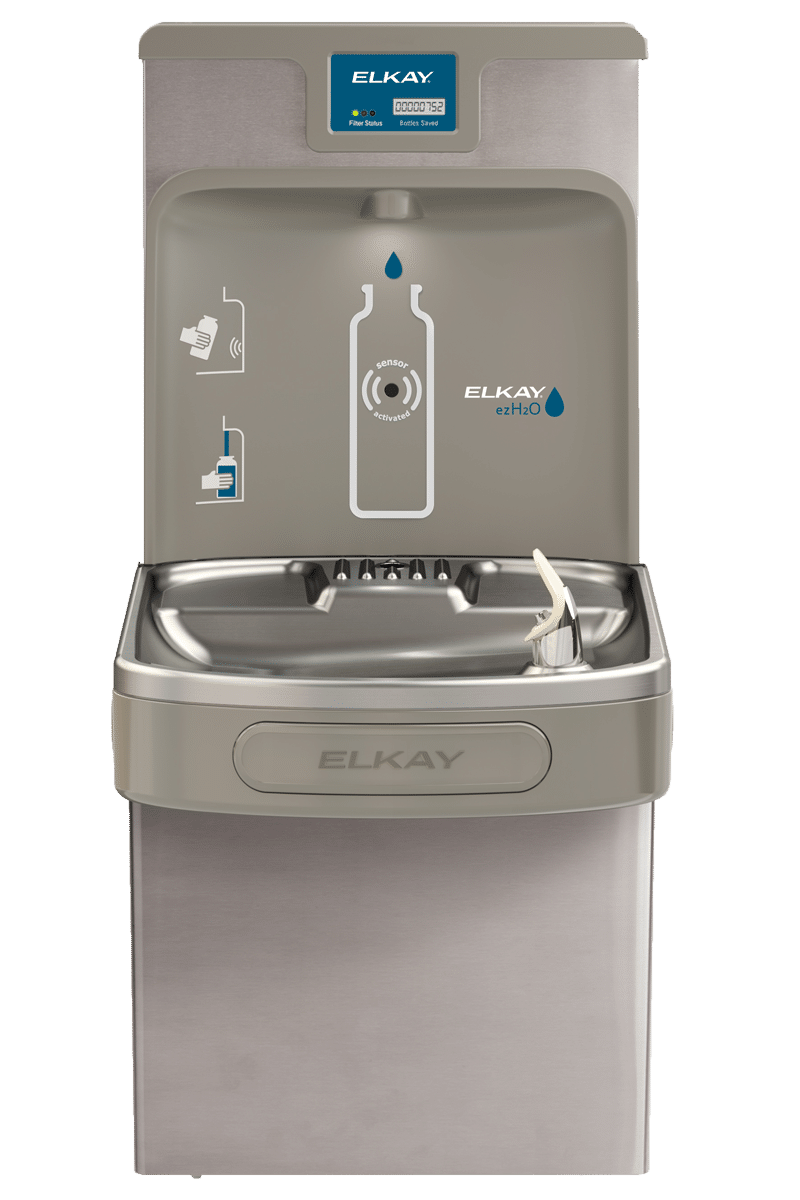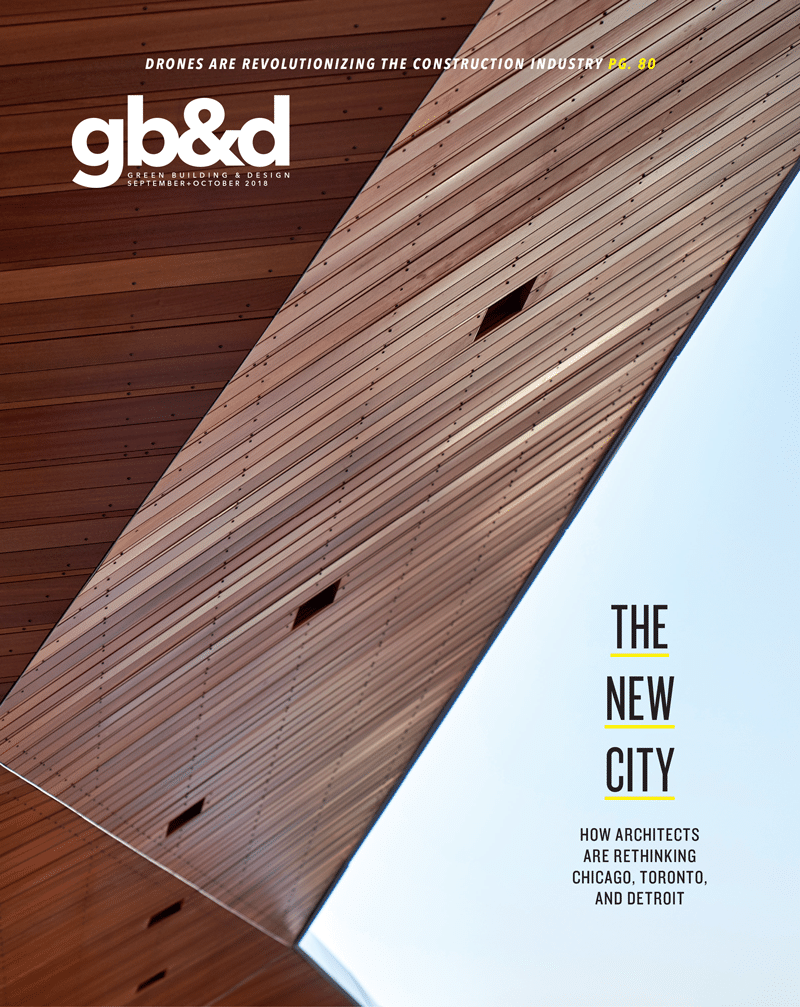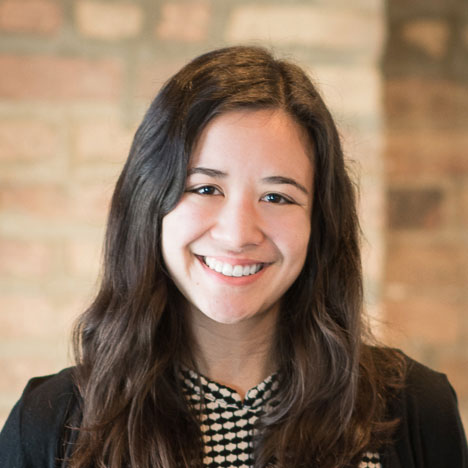
Students are advocating for more bottle filling stations on campus. [Photo: Courtesy of Elkay]
Experts at Elkay® weigh in on why bottle filling stations are an asset to public health.
The students at New Mexico State University (NMSU) were recently on the lookout for a healthier, easier way to access water. The traditional water fountains on campus just weren’t cutting it anymore.
“A student volunteer heard about Elkay ezH2O® and rallied students around the idea of bringing it to the university,” says Arti Lyde, director of global product management and strategy at Elkay. A local plumbing company donated the first bottle filling station to the university, installing the system in the student activity center, which is the main place where students hang out and exercise.
A Successful Solution
Students immediately saw a difference in convenience. Now they could stay hydrated and fill water bottles in seconds. The donated bottle filling station was such a hit that they advocated for more bottle filling stations across campus, too. Soon, administrators got in on the movement, especially as they realized the energy savings inherent with the technology. In three years, the university has installed more than 30 bottle filling stations.
“In the world of environmentalism, sustainability, and education as a whole, it’s very difficult to see practical results working efficiently,” says Matt Thomas, CEO at BeCause Water, a nonprofit that provides consultations on best water practices to schools and communities. “ezH2O is one that intersects the values of sustainability and health with a very, very tech-savvy, engaging solution.”
Lyde says consumers, especially college students, are switching from taking quick sips of water from an old-school fountain to carrying water bottles. Elkay’s bottle filling stations help meet this need while promoting sustainability, public health, and hydration. “Drinking fountains have always been required in the plumbing codes, but now with the onset of our ezH2O bottle filling stations, it’s really given a new dimension to the way folks get water in public spaces,” says John Watson, manager of compliance and sustainability at Elkay.

Elkay’s ezh20 bottle filling stations are improving health and hydration. [Photo: Courtesy of Elkay]
FROM OUR SEPT+OCT 2018 ISSUE
The preferred publication of leading green professionals.
Sustainable Technology
The ezH2O bottle filling station saves plastic water bottles from turning into waste, too. “Every bottle filler is eliminating hundreds of thousands of individual-use bottles from ending up in landfills and oceans,” Lyde says. “The number is staggering. It’s sometimes as high as 9 out of 10 bottles that could end up not being recycled.” Within a couple of years, NMSU saw a half-million bottles saved—that’s a significant amount of plastic kept out of the waste stream. On top of that, NMSU saved on labor costs and waste disposal fees.
Every bottle filling station includes a Green Ticker™ that shows how many bottles have been saved from waste, making the experience exciting and interactive, too. Elkay’s Enhanced bottle fillers include an energy saving mode to allow facilities managers to shut off the refrigeration system over nights and weekends as well.
Bottle filling stations also save water from going down the drain—100% of the water flows directly into your bottle. “When you drink water from a traditional drinking fountain, 50% of that water actually goes down the drain,” Watson says. The infrared filling device features a sanitary, no-touch sensor that automatically shuts off when the bottle is full, and the station’s laminar flow allows for a quick fill with minimal splash—taking only seven seconds to fill up a standard 16-ounce water bottle.
Healthier Drinking Water
“Delivering clean, filtered water has had one of the biggest impacts on global health,” Lyde says. Elkay’s ezH2O bottle filling station has a filter that helps remove dangerous contaminants while improving the taste of the water. “Water helps regulate body temperature, provides lubrication for your joints, helps blood flow, and regulates blood pressure,” Lyde says. “By making water more accessible, we can drive improvement in health.”
Watson also points out that many schools across the nation have challenges with safe drinking water. “For example, in Chicago, reports show many of the fixtures in public schools have excessive amounts of lead, above the 15 parts per billion allowed by law,” he says. Fortunately, Elkay’s ezH2O bottle filling station helps remove lead to help reduce student health issues related to lead exposure and provide access to cleaner, healthier water. The unit features a filter status indicator that allows consumers to know they’re getting clean, filtered water every time they fill up.
Growing in Popularity
Outside of the educational market, Elkay’s bottle filling stations are also expanding into public transportation spaces, like airports. You’ll see many of the stations located right after security because people have become accustomed to carrying their own water containers, emptying them before they go through security, and then refilling them when they get to the other side.
“Water is a key aspect of human health. The more we increase our access to it, the more we’re going to improve our health as a country,” Thomas says. “There’s a clear incentive for us to invest in public drinking fountains—for our environment and our economy.”
In the future, Elkay hopes to develop higher levels of filtration and expand into new environments—including residential areas. “There’s a saying in the green business, which is ‘People don’t like to buy green products from brown manufacturers,’” Watson says. “That’s why we’re also working on our internal processes to make sure that,
as a manufacturer of a sustainable product, we’re also using sustainable practices.”
By the Numbers
- After three years, NMSU is now home to 34 Elkay ezH2O bottle filling stations.
- The university estimates that more than 527,000 bottles have been saved.
- The amount of bottles saved is equal to more than 21,600 pounds of 16.9-ounce bottles.
- NMSU has achieved a 70% diversion rate—the percentage of waste that does not end up in landfills.
Worldwide Impact
Elkay is supporting communities around the world by helping them improve their public health. “In the state of Chiapas, Mexico, there was a concern around both obesity as well as diabetes,” says Arti Lyde, director of global product management and strategy at Elkay. Students were not staying hydrated, and they were bringing sugary beverages like juices or even one-liter bottles of soda to school.
Lyde and her team worked with the state government in Chiapas to introduce Elkay’s ezH2O bottle filling stations to help reduce the students’ sugar intake and dependency on sugary beverages. After installing the bottle filling stations, about 86% of the students started drinking more water. “Students were so excited about what they were able to have at school that many of them brought empty containers to school that they could fill up as a trusted source of filtered water to bring back home to their families.”


